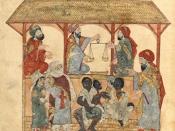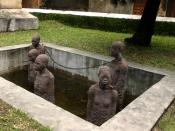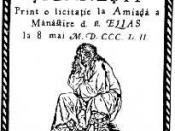CLAS 1P92 Roman Civilization Paper
Topic: To what degree did Roman recognize that slaves were people and not things?
In the modern day, people still debate on whether the Roman recognized the slaves as people or things. There were circumstances where Romans recognized slaves as human beings; however, for most of the time during the Roman civilization, they perceived slaves as things. Slaves generated economic benefits to roman society through manumission process. However, Romans observed a slave as property in social and political perspectives. Romans used their slaves to symbolize their social status in Roman society. Moreover, Roman law viewed slaves as property that operates on dangerous construction site and sold in labour markets. In my opinion, I believe that the Romans did observe slaves as things because the historical evidences proves that the slaves created strong political and social difficulty in the Roman society compared to economic benefits.
It was not always the case that the Roman citizens abominate slaves as property.
To begin with, numerous Roman citizens believed that they were financially better to do the work by themselves since feeding foods and clothes to slaves was expensive. However, this is not always true because the manumission provides numerous benefits. In the Journal 'Roman Freedmen During the Late Republic' by Susan Treddiari, she emphasizes that "the institution of slavery was not necessarily a dead end for those it encompassed; that freedmen as individualsâ¦had open to them a number of opportunities for improving their financialâ¦therefore, the relationship between the freedman and his patron was essential in determining the success achieved by the freedmen." The manumission of the slaves provides opportunities for slaves to enhance their specialized skill, which will strengthen the bonds between the patron and the client. Through this solid trust, patron observed the freedman as an individual...


